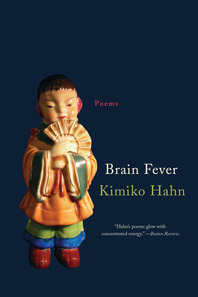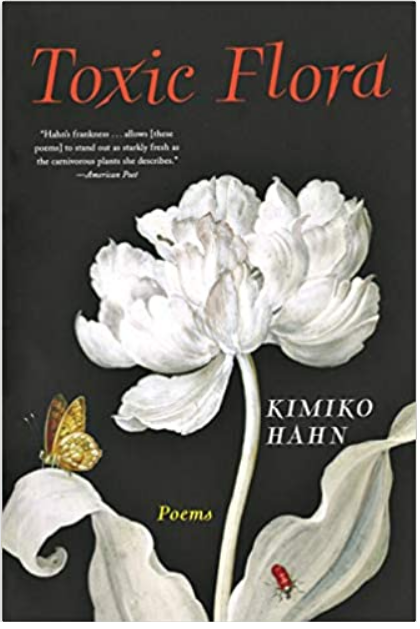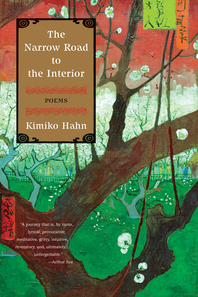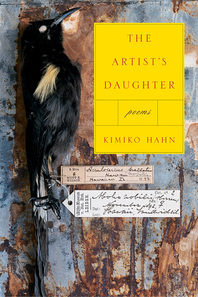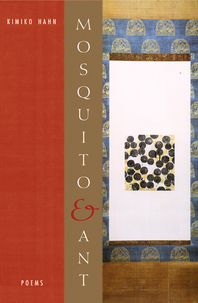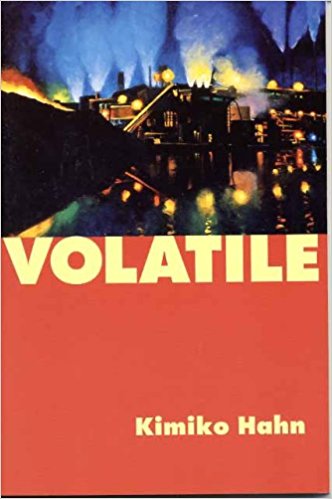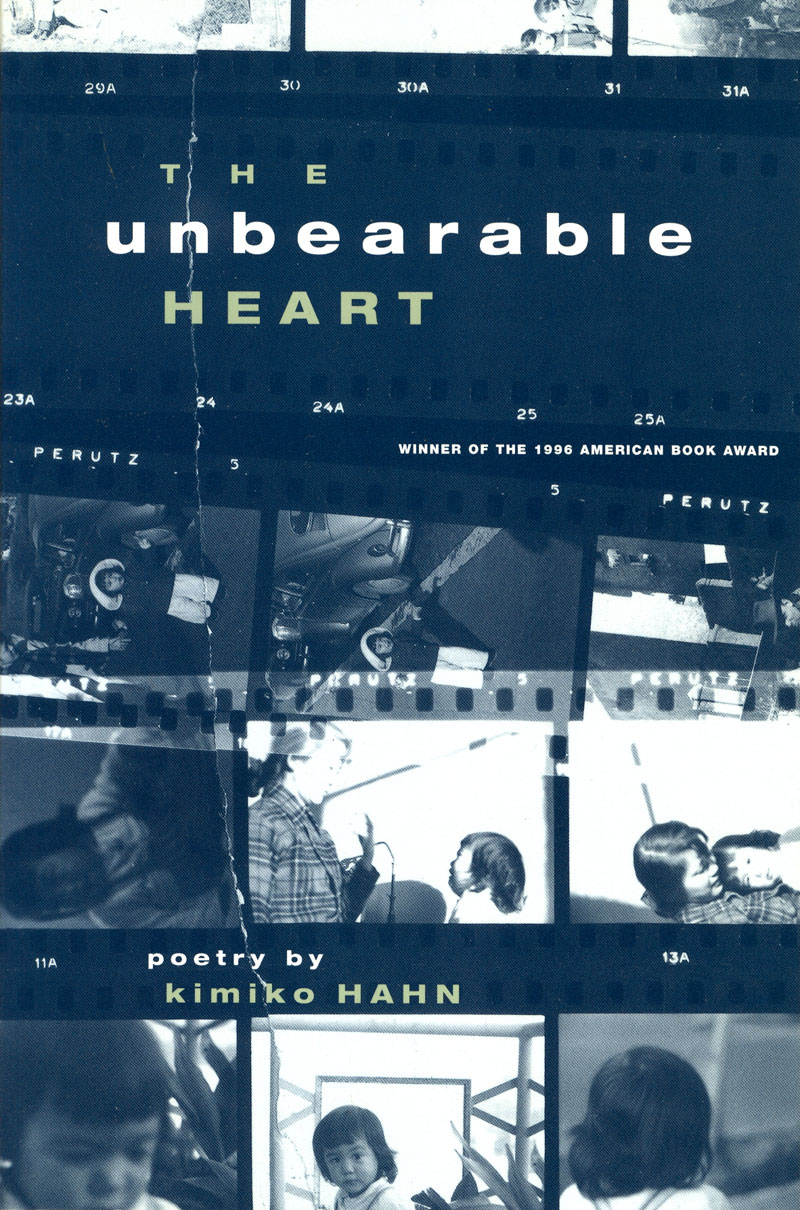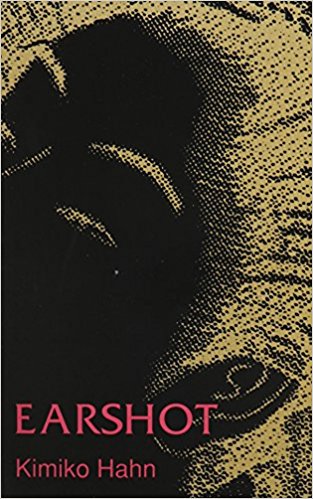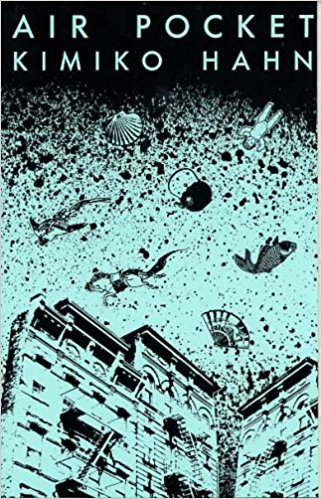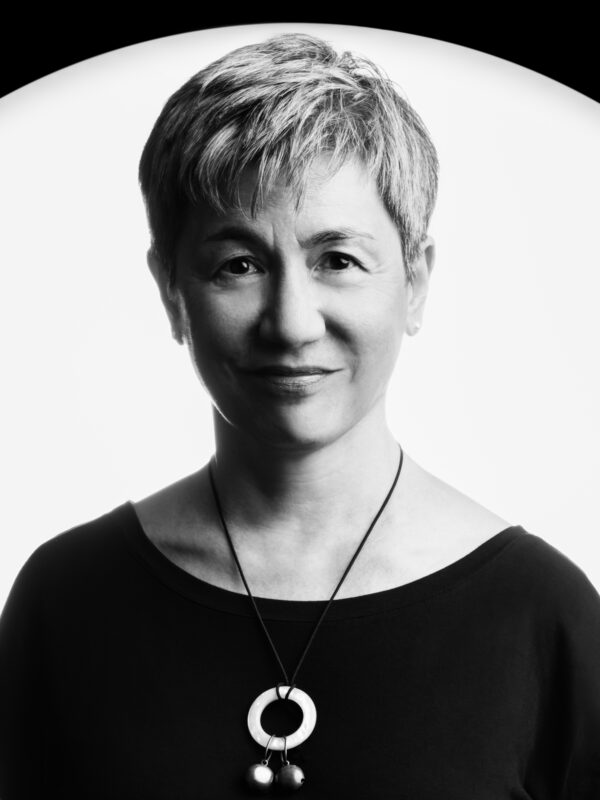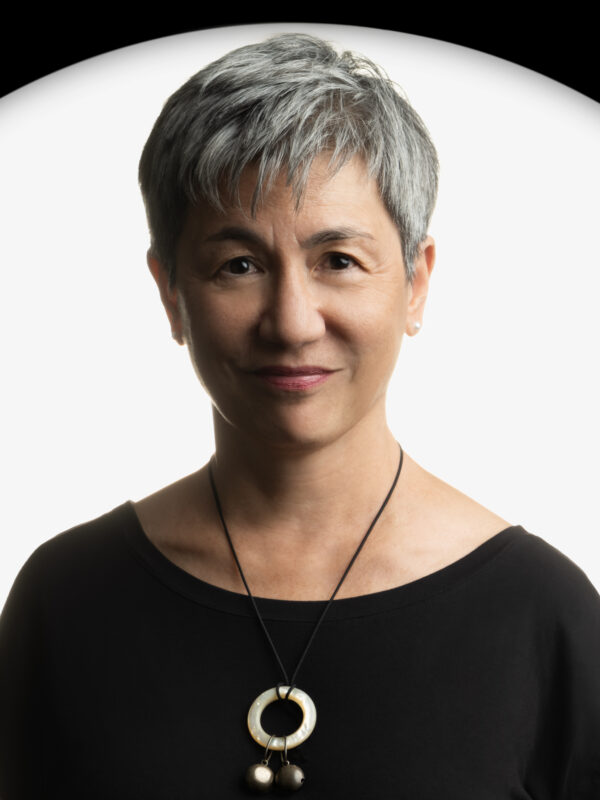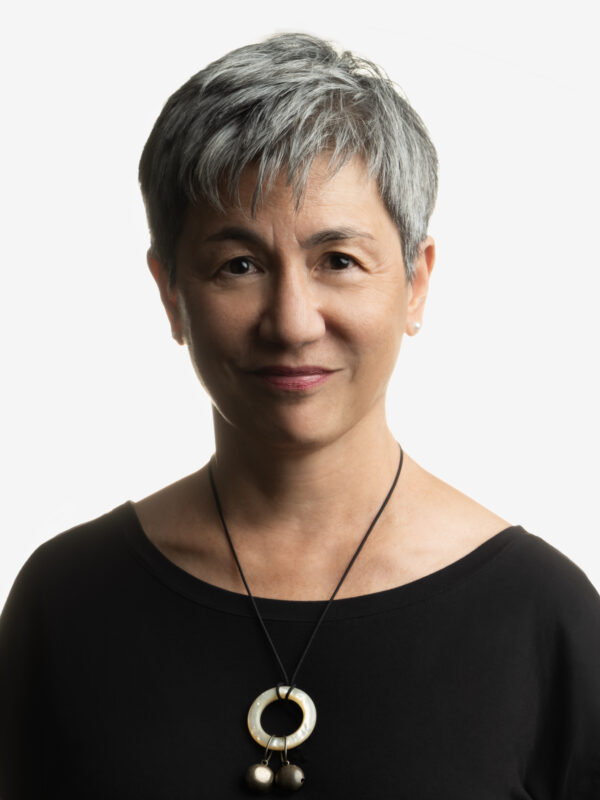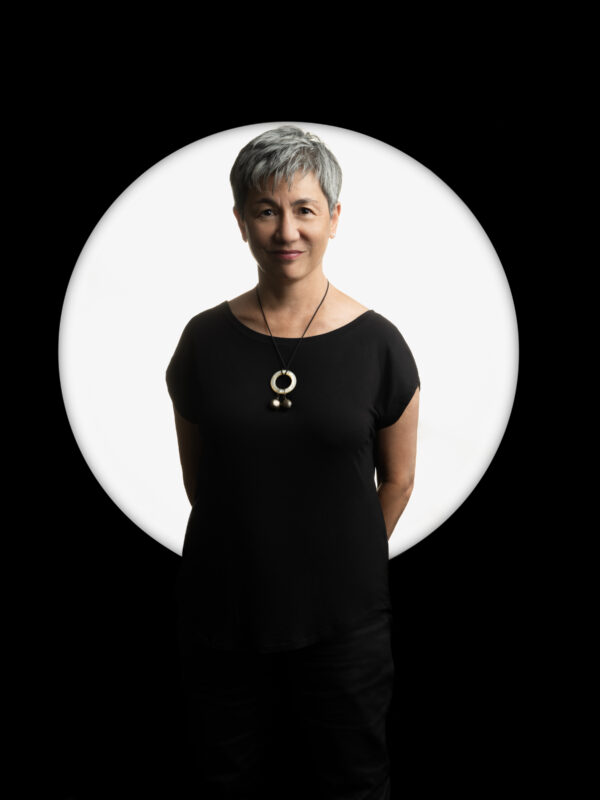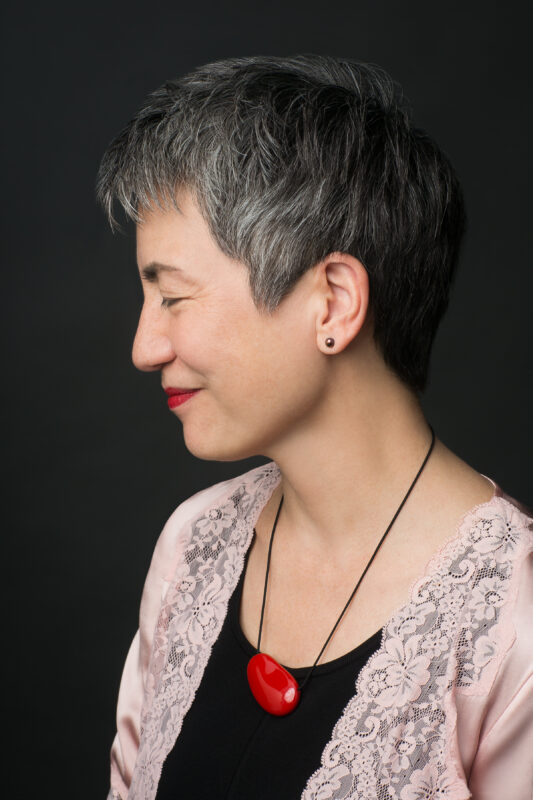
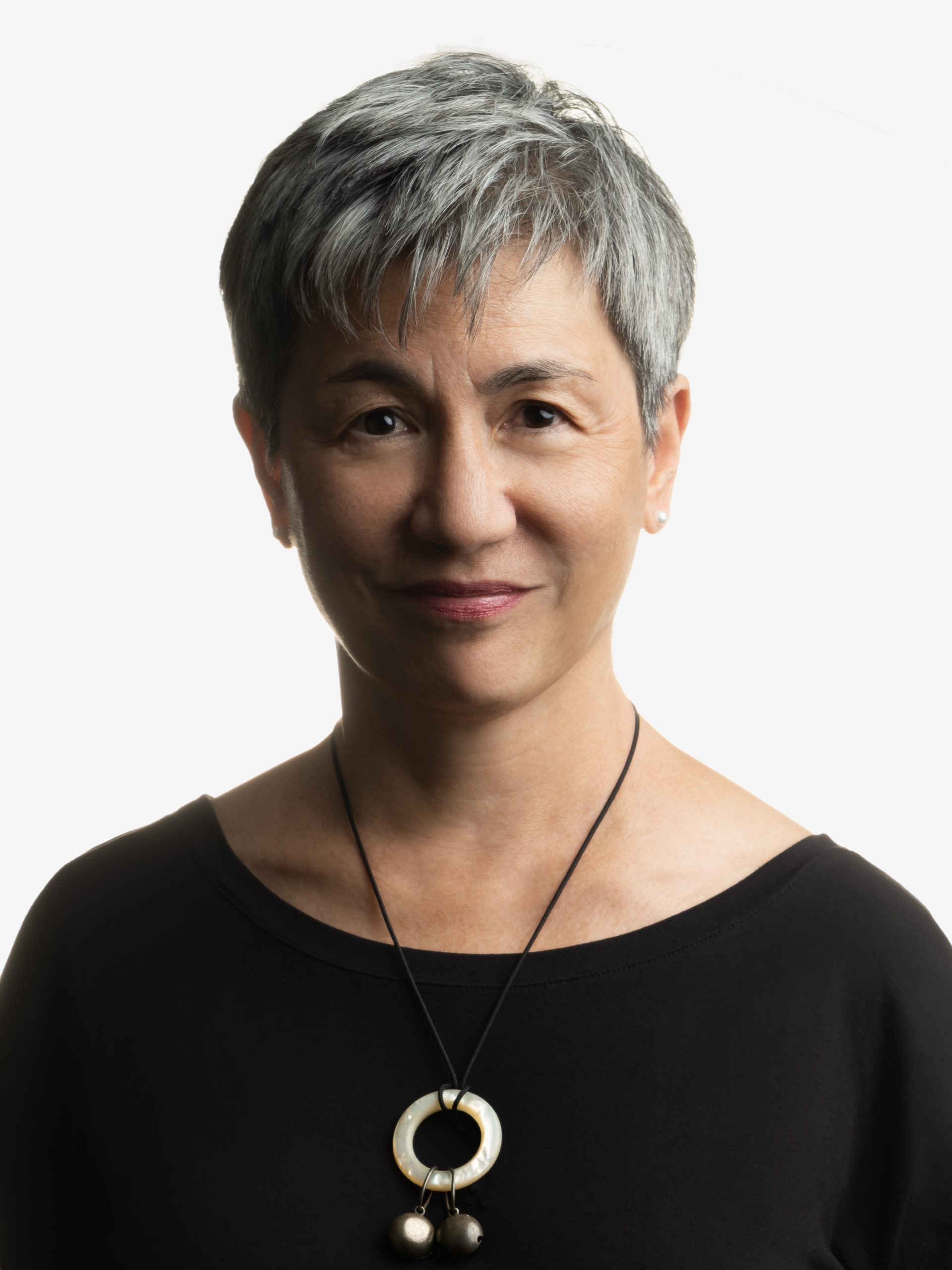
Kimiko Hahn
Acclaimed Poet & Teacher
Ruth Lilly Poetry Prize
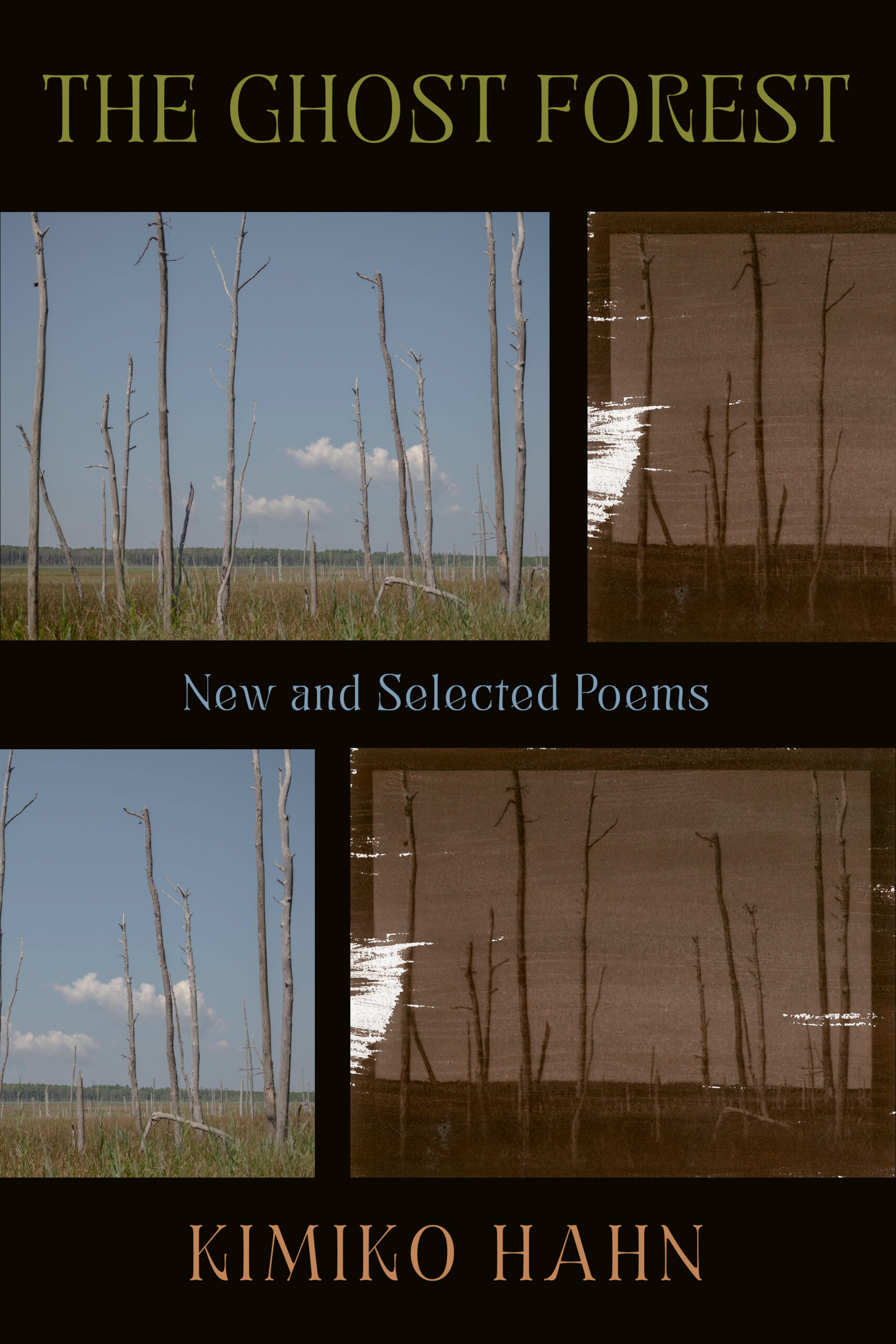
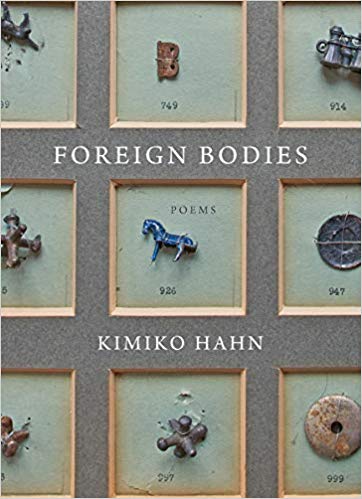
Readings &
Lecture Topics
- Outlaw: Crafting Your Chapbook
- Using Forms as Rough Draft
- Invent Your Own Form
- But Titles Are So Hard!
- The Elders Offer Portals: How Did the Poet Do That?!
- Japanese Forms, an Introduction from Haiku to Zuihitsu
- Hybrid Texts: How to Start, How to Revise (Intermediate)
- Tips on Research as Writing Prompt (Advanced)
- Tips on Research and Project-Oriented Poetry (Advanced)
- An Evening with Kimiko Hahn
Biography
“In Hahn’s hands, the smallest of relics become powerful portals through time, space, and memory. With expert lyric sensibility and all the anguish of daughterhood, [Hahn] reminds us of the necessity of poetry as a spell for intimacy. It’s a spell that offers hope of the most urgent kind: the hope of closing the gap between ‘my other’s body’ and ‘my mother’s body,’ between ourselves and all that we can’t reach.” –Franny Choi
“Hahn works from the minute, ephemeral stuff left from a life (a loose thread, a single hair, an open safety pin) back to the overarching themes of memory, death, love, and sorrow.” –Lynn Emanuel
“Hahn’s poem encourages us to look to our most unassuming neighbors—and in them, find ourselves.” –Chicago Review of Books
Kimiko Hahn is the author of eleven books of poems, including: The Ghost Forest: New and Selected Poems (W. W. Norton, 2024); Foreign Bodies (W. W. Norton, 2020); Brain Fever (WWN, 2014), and Toxic Flora (WWN, 2010), all collections prompted by science; The Narrow Road to the Interior (WWN, 2006), a collection that takes its title from Basho’s famous poetic journal; The Unbearable Heart (Kaya, 1996), which received an American Book Award; Earshot (Hanging Loose Press, 1992), which was awarded the Theodore Roethke Memorial Poetry Prize and an Association of Asian American Studies Literature Award.
The Ghost Forest offers a contemplative and haunting narrative of a writer’s artistic journey through craft and form while illuminating personal themes influenced by her Japanese American heritage. Exploring the mysteries of science, nature and the experiences of contemporary womanhood, Hahn both reinvents classic Japanese forms such as the zuihitsu and tanka and experiments with traditional Western ones, among them the villanelle, sestina, and glosa. Nicole Sealey hailed the collection as: “An evocative braided autobiography in poetry that welcomes miscellany and disorder and reveals a mind as vast as the terrains it traverses.”
Hahn’s major contribution to American literary scene may be the introduction of a genre that is neither poetry nor prose: the Japanese zuihitsu. In the Asian American Writer’s Workshop journal, The Margins, Dana Isokawa wrote: “Hahn laid the groundwork for the zuihitsu in American poetry, in particular with her collection The Narrow Road to the Interior (W.W. Norton, 2006). Shortly after the book came out, Hahn shared in a BOMB interview that she initially studied zuihitsu in an academic setting but started writing them in the nineties after being invited to do so for a reading at the Poetry Project celebrating Shōnagon’s The Pillow Book. While the zuihitsu is frequently compared to an essay, Hahn showed its possibilities as a poetic text.” The writer Rajiv Mohabir has said of her: “[The zuihitsu] was brought into the world of American poetry through the work of Kimiko Hahn and it resists simple genre definition, relying on temperature and voice, arrangement and precision.” She wrote a 2021 article for the American Poetry Review, “The Zuihitsu and the Toadstool” and, at present, she and Dana Isokawa are co-editing an anthology of zuihitsu, from the Japanese classics on to contemporary American versions (forthcoming W.W. Norton, 2026).
As part of Hahn’s service to the CUNY community, she initiated a Chapbook Festival that became an annual event co-sponsored by major literary organizations. Since then, she has added chapbooks to her list of publications: (Write it!): a collection of odes, Brittle Process, Brood, Ragged Evidence, A Field Guide to the Intractable, Boxes with Respect, The Cryptic Chamber, and Resplendent Slug. In 2017, she and Tamiko Beyer collaborated on the chapbook Dovetail.
She takes pleasure in the challenges of collaboration: writing text for film including: Coal Fields, the 1985 experimental documentary by Bill Brand; Ain’t Nuthin’ but a She Thing a 1995 HBO special; and Everywhere at Once, a 2008 film based on Peter Lindbergh’s still photos and narrated by Jeanne Moreau).
Hahn’s honors include a Guggenheim Fellowship, PEN/Voelcker Award, Shelley Memorial Prize, a Lila Wallace-Reader’s Digest Writers’ Award as well as fellowships from the National Endowment for the Arts and the N.Y. Foundation for the Arts. She has taught in graduate programs at the University of Houston and New York University. Hahn has also taught for literary organizations such as the Fine Arts Work Center, Cave Canem, and Kundiman. From 2016-2019, Hahn was President of the Board of Governors, Poetry Society of America. In 2023, she was named a Chancellor for the Academy of American Poets and received The Poetry Foundation’s Ruth Lilly Lifetime Achievement Award.
She lives in New York where she is a distinguished professor in the MFA Program in Creative Writing & Literary Translation at Queens College, The City University of New York.
Short Bio
Kimiko Hahn is author of ten collections of poetry, including The Ghost Forest: New & Selected Poems (W.W. Norton, 2024) which plays with given forms while creating new ones, and, in doing so, honors past writers. Previous books Foreign Bodies, Toxic Flora, and Brain Fever were prompted by fields of science; The Narrow Road to the Interior takes title and forms from Basho’s famous journals. Reflecting her interest in Japanese poetics, her essay on the zuihitsu was published in the American Poetry Review.
In 2023, Kimiko was named a Chancellor for the Academy of American Poets and received The Poetry Foundation’s Ruth Lilly Lifetime Achievement Award. Additional honors include a Guggenheim Fellowship, PEN/Voelcker Award, Shelley Memorial Prize, Theodore Roethke Memorial Poetry Prize, American Book Award, and NEA Fellowships. In her service to the field, she enjoys promoting chapbooks and has created a chapbook archive at the Queens College Library. Hahn is a distinguished professor in the MFA Program in Creative Writing & Literary Translation at Queens College, The City University of New York.
Videos
Publications
The Ghost Forest: New and Selected Poems
Poetry, 2024
“An evocative braided autobiography in poetry that welcomes miscellany and disorder …. and reveals a mind as vast as the terrains it traverses.” —Nicole Sealey, The Poetry Foundation
Opening with 43 new formally inventive poems and leading the reader back in time through selections from her ten previous volumes, The Ghost Forest offers a contemplative and haunting narrative of a writer’s artistic journey through craft and form while illuminating personal themes influenced by her Japanese American heritage. Exploring the mysteries of science, nature and the experiences of contemporary womanhood, Hahn both reinvents classic Japanese forms such as the zuihitsu and tanka and experiments with traditional Western ones, among them the villanelle, sestina, and glosa. Braided into the poems and narrative thread, a series of photos transforms the new-and-selected into a hybrid autobiography. Like the titular forest, this arresting collection derives new beauty from long-gone remnants.
Mother crafted Christmas ornaments:
glue and glitter and red balls.
No tinsel, no angels.
Her death started in the living room.
— From “The Ashes”
Foreign Bodies
2020
Inspired by her encounter with Dr. Chevalier Jackson’s collection of ingested curiosities at Philadelphia’s Mütter Museum, Kimiko Hahn’s tenth collection investigates the grip that seemingly insignificant objects exert on our lives. Itself a cabinet of curiosities, the collection provokes the same surprise, wonder, and pangs of recognition Hahn felt upon opening drawer after drawer of these swallowed, and retrieved, objects—a radiator key, a child’s perfect attendance pin, a mother-of-pearl button. The speaker of these moving poems sees reflections of these items in the heartbreaking detritus of her family home, and in her long-dead mother’s Japanese jewelry. Foreign Bodies investigates the power of possession, replete with Hahn’s electric originality and thrilling mastery of ever-changing forms.
Brain Fever
2017
Rooted in meditations on contemporary neuroscience, Brain Fever takes as its subject the mysteries of the human mind—the nature of dreams and memories, the possibly illusory nature of linear time, the complexity of conveying love to a child. Equally inspired by Sei Shonagon’s tenth-century Pillow Book and the latest findings of cognitive research, Brain Fever is a thrilling blend of the timely and the timeless.
Toxic Flora
2011
For Kimiko Hahn, the language and imagery of science open up magical possibilities for the poet. In her haunting eighth collection inspired by articles from the weekly “Science” section of the New York Times, Hahn explores identity, extinction, and survival using exotic tropes drawn from the realms of astrophysics, mycology, paleobotany, and other rarefied fields. With warmth and generosity, Hahn mines the world of science in these elegant, ardent poems.
The Narrow Road to the Interior
2008
Here Hahn takes up the Japanese prose-poetry genre zuihitsu—literally “running brush,” which utilizes tactics such as juxtaposition, contradiction, and broad topical variety—in exploring her various identities as mother and lover, wife and poet, daughter of varied traditions.
The Artist's Daughter
2004
Kimiko Hahn’s poetry explores the interplay―and tensions―among her various identities: mother, lover, wife, poet, and daughter of both the Midwest and Asia. However astonishing her subjects―from sideshow freaks to sadomasochistic fantasy―they ultimately emerge in this startling collection as moving images of the deepest levels of our shared humanity.
Mosquito and Ant
1999
This breakthrough volume is Hahn’s most rigorously “female” work to date. Mosquito and Ant refers to the style in which nu shu—a nearly extinct script used by Chinese women to correspond with one another—is written. The narrator writes to L. about her hidden passions, her relationship with her husband and adolescent daughters, lost loves, and erotic fantasies. Hahn offers us an authentic and complex narrator struggling with the sorrows and pleasures of being a woman against the backdrop of her Japanese-American roots.
Volatile
1999
“In this book, Kimiko Hahn manages to take the air of atrocity we breathe in daily and turn it into fierce political/lyrical poetry, in the tradition of Shelley’s The Masque of Anarchy. Current events ripped open and the entrails exposed in living color. She is one of our strongest poets.”—Harvey Shapiro
In Volatile, Hahn’s lyrical voice maintains its course through narratives ranging from quiet recollections of childhood to the sometimes unbearable horrors of the modern world.
The Unbearable Heart
1996
A passionate book of grief and mourning of a mother’s death. The poems range from Murasaki’s Genji to Roland Barthes’ masculinist post-structuralism. Hahn continues her explorations of Japanese folk and classical themes and poetics, while her magnificently imagined voice of Kuchuk Hanem, the Egyptian prostitute described in Flaubert’s travelogues, bravely ventures into new areas of meaning suppressed by Orientalism about the Middle East.
Earshot
1992
Hahn’s second book is “[a] sensual maze of language and startling imagery. Hahn’s poetry intoxicates you with her sexual passion, her rigorous intelligence, and the luminous quality of her writing” (Jessica Hagedorn). Jack Hirschman comments that “Hahn’s new collection, even more concentrated in content than Air Pocket, covers all bases: from first, to the keystone, to the dialectical hot corner to home. Kisses pumped up from the left ventricle.”
Air Pocket
1988
Air Pocket is Kimiko Hahn’s first book, a collection rooted in the actual and emotional geography of California. Acclaimed as “one of the most fascinating female poets of our time” (BOMB), Kimiko Hahn is a shape-shifter, a poet who seeks novel forms for her utterly original subject matter and “stands as a welcome voice of experimentation and passion” (Bloomsbury Review).
Articles & Audio
Read What’s In Print
• From Ghostly Forests to “Zombie Vomit Mad Libs.” Seven Poetry Books to Read in November
• Ten Questions for Kimiko Hahn – Poets & Writers
• The Breadth of Our Existence: On Kimiko Hahn – Poetry Foundation
• An Interview with Kimiko Hahn – BOMB Magazine
• The Poetry of Science – The New York Times
• On Relic and Recovery: A Conversation with Kimiko Hahn – The Rumpus
• Review of Foreign Bodies – Publisher’s Weekly
• Object Lessons: An Interview with Kimiko Hahn – Harvard Review
• Poetry at the Crossroads: A Conversation with Kimiko Hahn – World Literature Today
• In Conversation with Kimiko Hahn – Kenyon Review
Listen to Audio
• 833: The Railroad Worm – The Slowdown Show
• A Brief But Spectacular take on the power of poetry – PBS
• KR Podcast with Kimiko Hahn – Kenyon Review
Selected Writings
• Read “Organized Decay” & other poems – The Offing
• Read “On Pleasing” – The New Yorker
• Read “The Ashes” – The Poetry Foundation
Foreign Body
This is a poem on my other’s body,
I mean, my mother’s body, I mean the one
who saved her braid of blue-black hair
in a drawer when I was little.
Meaning one I could lean against —
against not in resistance. Fuzzy dress
of wuzzy one. Red lipstick one.
Kitchen one. Her one to me,
bad-ger bad-ger —
or so I heard. The one body I write on
like Daddy’s blank studio wall
with my colored pencils.
About seeing her skin
as she bathed in the afternoon —
was I five? It was summer.
Then today’s winter where again
I call that bath to mind.
I cannot leave her body alone.
Which is how I found Mother in the bath
escaping the heat of a 1950s house,
Father on a ladder with blowtorch
to scrape the paint off the outside.
•
badger badger
•
The sun in the suburbs
simmered the tar roof over our rooms
in the town where only wasps lived
inside paper cells beneath eaves and roots.
And they hurt very much, the wasps.
•
Now I am sixty. Sweet as dried papaya.
My hair, a bit tarnished,
my inmost, null.
Memory is failing away
as if an image shattered to shards then
recollected for a kaleidoscope:
I click the pieces into sharp arrangements —
grouse, crow, craven
— no, now, my own daughter turns sovereign
The Dream of a Fire Engine
Without the sun filtered through closed eyelids,
without the siren along the service road,
without Grandpa’s ginger-colored hair,
Mother’s lipstick, Daughter’s manicure,
firecrackers, a monkey’s ass, a cherry, Rei’s lost elephant,
without communist or past tense,
or a character seeing her own chopped-off feet dancing in fairy slippers,
or Mao’s favorite novel about a chamber —
the scientist of sleep has claimed
that without warm blood a creature cannot dream.

